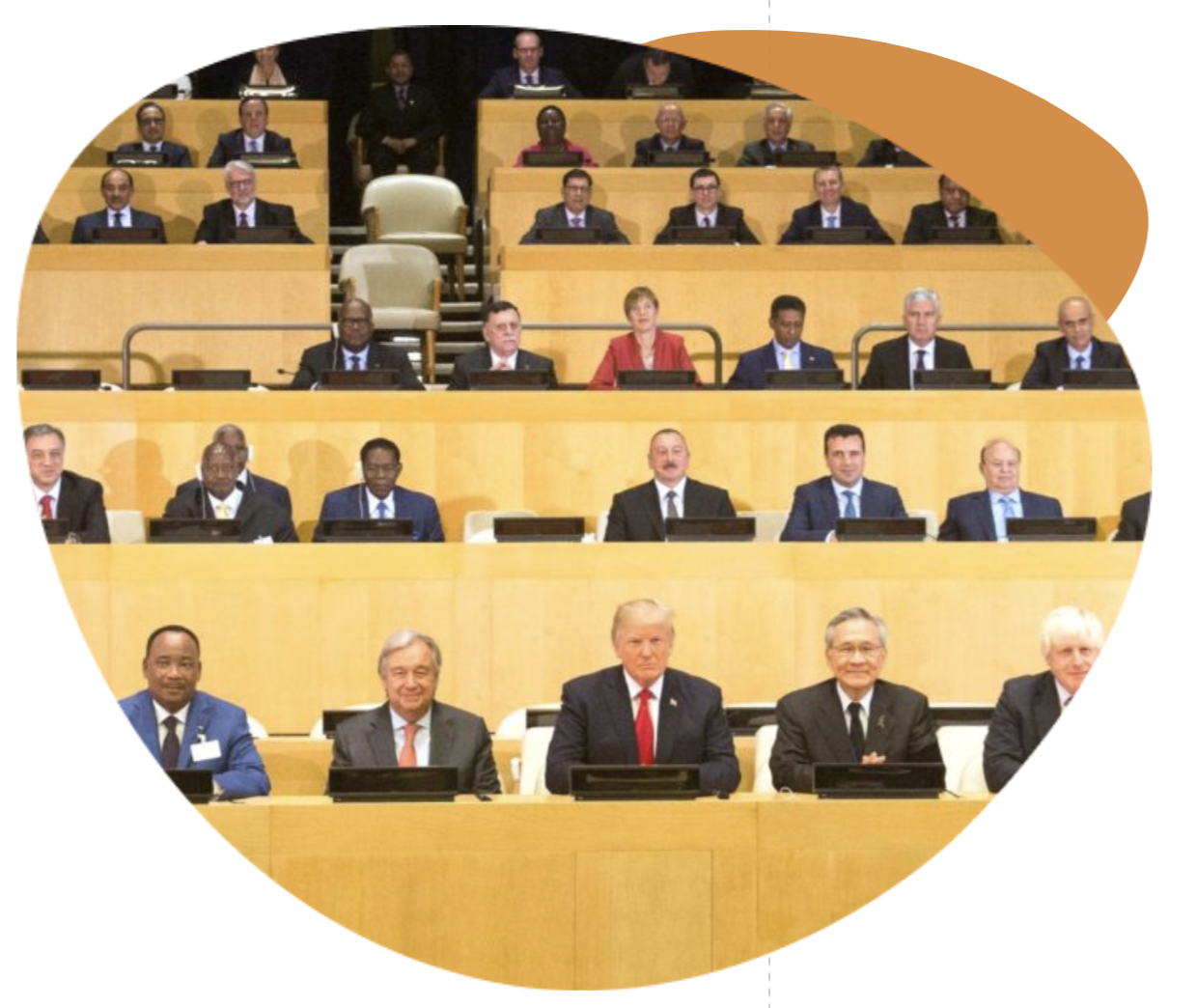When 'Leadership' Means Acknowledging Others Might Know Better
DOI:
https://doi.org/10.21153/thl2020volno0art1020Keywords:
Humanitarian leadership, inclusionAbstract
Humanitarian work in the early twenty-first-century is steeped in the rhetoric of ‘inclusion’ and ‘leave no one behind’. Yet, “too often it is the most vulnerable people and the people most in need [who] fall through the cracks” of humanitarian responses (International Federation of Red Cross and Red Crescent Societies 2018, p. 5).
This paper argues that humanitarian leadership is in need of a major paradigm shift: one requiring agencies to actually learn from people’s lived reality, rather than trying to fit that lived reality into pre-existing international systems and procedures. Humanitarians should reconsider tools that are not fit for purpose and reconsider ways of working that are built on a flawed logic of ‘vulnerability’ and ‘protection’. This paradigm shift is vital for ensuring that those “most vulnerable people”, the most marginalised and excluded, are at the forefront of humanitarian (and development) thinking.
(International Federation of Red Cross and Red Crescent Societies (IFRC) 2018, ‘Leaving no one behind’, World Disasters Report, IFRC, Geneva, https://media.ifrc.org/ifrc/world-disaster-report-2018/)
Downloads
References
Acker, J 2006, ‘Inequality regimes: gender, class, and race in organizations’, Gender & Society, vol. 20, no. 4, pp. 441–464.
Agenda for Humanity 2017, World Humanitarian Summit 2016, viewed 4 December 2019, https://www.agendaforhumanity.org/summit?_redirect_whsres
Ban, K-M 2016, One humanity: shared responsibility, Report of the United Nations Secretary-General for the World Humanitarian Summit, United Nations, New York
Charter4Change 2015, ‘Charter for Change’, viewed 12 September 2019, https://charter4change.org/2015/07/31/thecharter/
Clarke, M & Parris, BW 2019, Vale the humanitarian principles: new principles for a new environment, Centre for Humanitarian Leadership & Deakin University, Melbourne, https://centreforhumanitarianleadership.org/wp-content/uploads/2019/07/Paper-001-•-Vale-the-Humanitarian-Principles.pdf
Collins, PH 1993, ‘Toward a new vision: race, class, and gender as categories of analysis and connection’, Race, Sex & Class, vol. 1, no. 1, pp. 25–45
Connell, RW 2002, Gender, Polity Press, Cambridge
Connell, RW 2005 [1995], Masculinities, 2nd edn, University of California Press, Berkeley
Cornwall, A 2003, ‘Whose voices? Whose choices? Reflections on gender and participatory development’, World Development, vol. 31, no. 8, pp. 1325–1342
Cornwall, A & Eade, D (eds.) 2010, Deconstructing development discourse: buzzwords and fuzzwords, Practical Action Publishing, Rugby & Oxfam GB, Oxford
Eade, D 2010, ‘Preface’, Deconstructing development discourse: buzzwords and fuzzwords, Cornwall, A & Eade, D (eds.), Practical Action Publishing, Rugby & Oxfam GB, Oxford
Fletcher, G 2014, ‘Just how do we create change? Sites of contradiction and the “black box” of change in primary prevention’, Preventing sexual violence: interdisciplinary approaches to overcoming a rape culture, Henry, N & Powell, A (eds), Palgrave Macmillan, Basingstoke & New York, pp. 127–149
Fletcher, G 2015a, Addressing gender in impact evaluation: what should be considered?, Overseas Development Institute, London, https://www.odi.org/publications/9933-addressing-gender-impact-evaluation-what-should-beconsidered
Fletcher, G 2015b, Gender, sexuality and inequality, Developmental Leadership Program, Birmingham & London, https://www.dlprog.org/publications/research-papers/gender-sexuality-and-inequality
Fletcher, G 2019, Engendering transformative change in international development, Hurd, H (ed), Routledge Explorations in Development Studies, Routledge, London & New York
Funnell, SC & Rogers PJ 2011, Purposeful program theory: effective use of theories of change and logic models, JosseyBass, San Francisco
Global Humanitarian Platform 2007, Principles of partnership: a statement of commitment, Geneva
Global Public Policy Institute & Inspire Consortium, no date, Methodology to assess coordinated multi-sector needs assessments, Inter-Agency Standing Committee (IASC), Geneva, https://interagencystandingcommittee.org/system/files/ws5_-_quality_criteria_and_eval_methodology_for_msnas_and_hnos_0.pdf
Glouberman, S & Zimmerman B 2002, Complicated and complex systems: what would successful reform of medicare look like?, Commission on the Future of Health Care in Canada, Ottawa
Grand Bargain Workstream 5, no date, Grand bargain principles for coordinated needs assessment ethos, IASC, Geneva, https://interagencystandingcommittee.org/system/files/ws5_-_collaborative_needs_assessment_ethos.pdf
High-Level Panel on Humanitarian Financing 2017, Too important to fail: addressing the humanitarian financing gap, https://interagencystandingcommittee.org/grand-bargain-hosted-iasc/documents/high-level-panel-humanitarianfinancing-report-secretary-general
International Council of Voluntary Agencies (ICVA), no date, Global humanitarian platform: an pverview, viewed 12 September 2019, https://www.icvanetwork.org/global-humanitarian-platform-ghp-overview
International Federation of Red Cross and Red Crescent Societies (IFRC) 2018, ‘Leaving no one behind’, World Disasters Report, IFRC, Geneva, https://media.ifrc.org/ifrc/world-disaster-report-2018/
Kimmel, MS & Ferber, AL (eds.) 2014, Privilege: a reader, Westview Press, Boulder
Leal, PA 2010, ‘Participation: the ascendancy of a buzzword in the neo-liberal era’, Deconstructing development discourse: buzzwords and fuzzwords, Cornwall A & Eade, D (eds), Practical Action Publishing, Rugby & Oxfam GB, Oxford, pp. 89–100
Lyne de Vere, H 2009, Conceptions of leadership, Developmental Leadership Program, London & Birmingham
Marshall, GC 1947, ‘The Marshall Plan Speech’, viewed 22 August 2019, https://www.marshallfoundation.org/marshall/the-marshall-plan/marshall-plan-speech/
Office for the Coordination of Humanitarian Affairs 2018, United Nations disaster assessment and coordination field handbook, United Nations, New York
Ore, TE 2009, The social construction of difference and inequality: race, class, gender, and sexuality, McGraw Hill, New York
Rahman, M & Jackson, S 2010, Gender & sexuality: sociological approaches, Polity Press, Cambridge & Malden
Reid, E, Waring, M, Rodriguez Enriquez, C & Shivdas, M 2012, ‘Embracing disruptions, responding to uncertainties, valuing agency: situating a feminist approach to social protection’, Development , vol. 55, no. 3, pp. 291–298
Steering Committee for Humanitarian Response 2010, Global humanitarian platform background paper: changing environment, growing complexities, increasing demands – implications for humanitarian actors, Geneva
Truman, HS 1949, ‘Inaugural address’, viewed 22 August 2019, https://www.trumanlibrary.gov/library/public-papers/19/inaugural-address
UNHCR Policy on Age, gender and diversity policy, United Nations, 2011
United Nations 1948, UN Charter, viewed 1 January 2020, http://www.un.org/aboutun/charter/
United Nations 2015, The millennium development goals report, United Nations, New York
United Nations Office for the Coordination of Humanitarian Affairs (OCHA) 2018, Staying the course: delivering on the ambition of the world humanitarian summit, OCHA, New York, https://www.unocha.org/sites/unocha/files/Staying%20the%20course_AFH%20synthesis%20report%202018_singles.pdf







